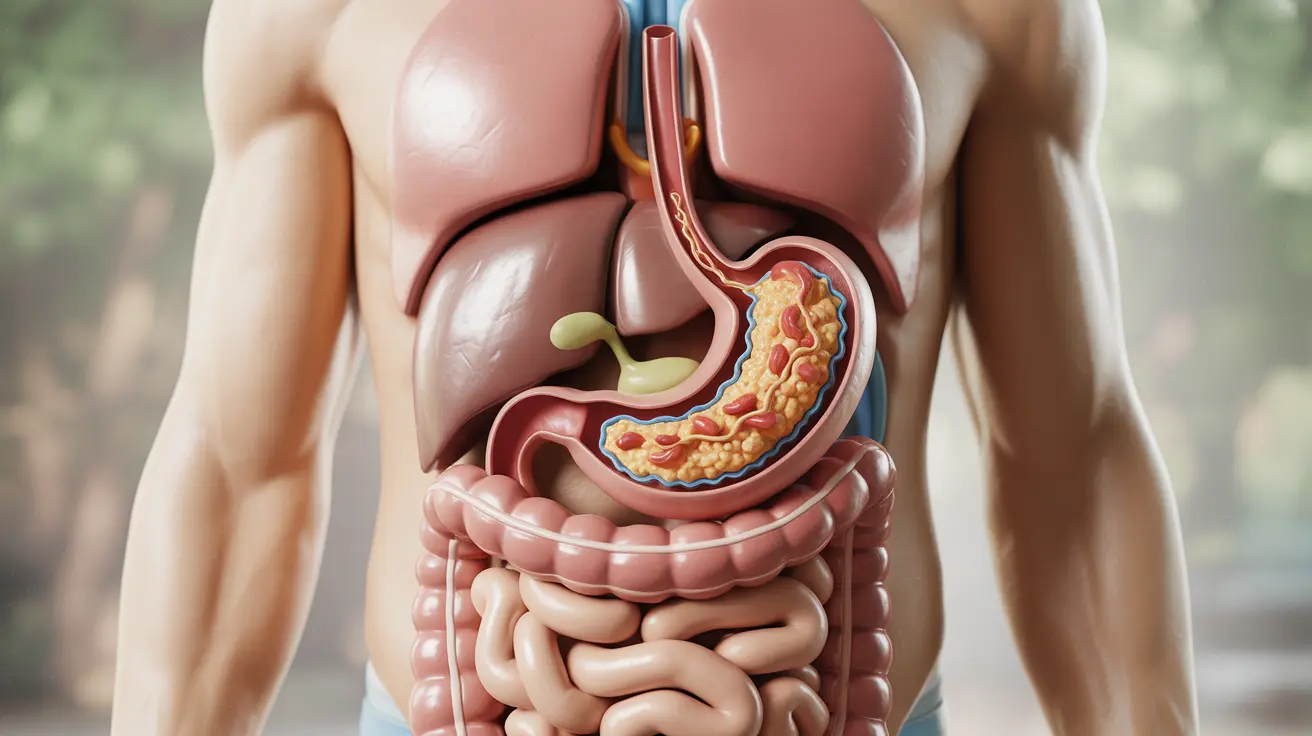Having the urgent need to poop right after eating is a common experience that many people face. This natural bodily response, known as the gastrocolic reflex, can range from a mild inconvenience to a significant disruption in daily life. Understanding why this happens and knowing when it might signal a deeper issue is crucial for maintaining digestive health.
While some degree of post-meal bowel activity is normal, frequent or intense urges to defecate immediately after eating may warrant attention, especially if they interfere with your quality of life or cause distress.
The Gastrocolic Reflex Explained
The gastrocolic reflex is your body's natural response to eating, where the act of consuming food triggers movement in your digestive system. When food enters your stomach, it signals your colon to make room for incoming nutrients by evacuating its contents. This reflex is particularly strong after breakfast or large meals due to your body's natural circadian rhythm.
This response can be more pronounced in some people than others, and various factors can influence its intensity, including:
- Meal size and composition
- Time of day
- Overall digestive health
- Stress levels
- Individual sensitivity
Common Triggers and Contributing Factors
Food-Related Triggers
Certain foods and beverages can intensify the urge to poop after eating:
- Caffeine-containing drinks
- Spicy foods
- High-fat meals
- Dairy products (especially in lactose-intolerant individuals)
- Foods high in artificial sweeteners
- Foods rich in fiber
Medical Conditions
Sometimes, the urgent need to defecate after meals may be related to underlying conditions:
- Irritable Bowel Syndrome (IBS)
- Inflammatory Bowel Disease (IBD)
- Celiac disease
- Food allergies or intolerances
- Bacterial overgrowth
- Chronic anxiety or stress
When to Seek Medical Attention
While post-meal bowel movements can be normal, certain signs warrant medical evaluation:
- Severe abdominal pain
- Blood in stool
- Significant weight loss
- Chronic diarrhea
- Frequent night-time bowel movements
- Inability to control bowel movements
Managing Post-Meal Bowel Urgency
Several lifestyle modifications can help manage the urge to poop after eating:
- Eating smaller, more frequent meals
- Identifying and avoiding trigger foods
- Managing stress through relaxation techniques
- Maintaining regular meal times
- Keeping a food diary to track reactions
- Staying well-hydrated throughout the day
Frequently Asked Questions
Why do I feel the urgent need to poop right after eating?
This urgency is primarily due to the gastrocolic reflex, a natural bodily response where eating triggers contractions in your colon. The reflex helps make room for incoming food by promoting bowel movements, and its intensity can vary among individuals.
Can stress or certain foods make me poop immediately after meals?
Yes, both stress and specific foods can intensify the urge to defecate after eating. Stress activates your gut-brain axis, while certain foods like coffee, spicy dishes, or fatty meals can stimulate stronger contractions in your digestive system.
How is the gastrocolic reflex linked to conditions like irritable bowel syndrome (IBS)?
In IBS, the gastrocolic reflex can be heightened, causing more intense and urgent bowel movements after eating. People with IBS often have more sensitive digestive systems that react more strongly to the normal processes of digestion.
When should I see a doctor if I always need to poop after eating?
Consult a healthcare provider if you experience severe pain, blood in stool, significant weight loss, or if the urgency severely impacts your quality of life. These symptoms could indicate an underlying condition requiring medical attention.
What lifestyle or dietary changes can help reduce the urge to poop right after eating?
Key changes include eating smaller portions, identifying and avoiding trigger foods, managing stress, maintaining consistent meal times, and keeping a food diary. These modifications can help regulate your digestive system and reduce post-meal urgency.




